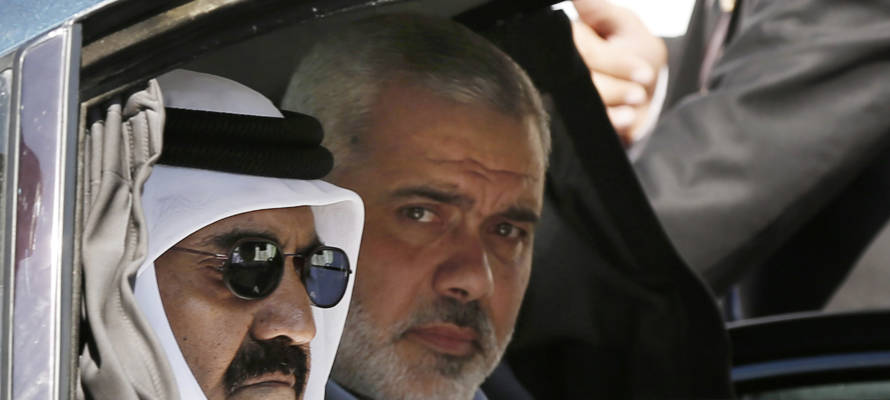The Biden administration intensifies pressure on Qatar to expel Hamas leadership, sparking speculation about potential relocation and regional ramifications.
By Baruch Yedid, TPS
American pressure on Qatar to expel the Hamas leadership is mounting as the Gulf state’s mediation of another ceasefire collapsed.
The Biden administration blames Hamas for the failure of ceasefire talks and the situation raises questions about where the terror group may relocate and what the implications of a move would mean for the region.
“Hamas knows that the Qataris do not tolerate [Yahya] Sinwar, but they would like to see [Khaled] Mashaal and [Musa] Abu Marzouk take over the organization in the future,” a Palestinian source told The Press Service of Israel.
The Qataris are currently defying the Biden administration, stressing that they have been hosting Hamas for more than a decade at Washington’s request.
The Arab Spring in 2011 heightened concerns in the United States that Hamas would align itself with Iran. Thus, the US encouraged Qatar to establish communication channels with Hamas, a relationship Qatar claims persists to this day. The terror group moved to Qatar in 2012 when it was expelled from Syria for supporting Syrian rebels. Hamas also opened offices in Turkey, where the terror group is ideologically close to President Recep Tayyip Erdogan and the ruling AK Party.
Qatar, with its close ties to various factions, including Hamas, became a suitable intermediary.
But sanctions have already been imposed on senior Hamas officials residing in Qatar and the Biden administration no longer considers the situation tenable.
So if Hamas is forced to leave Qatar, Turkey emerges as a likely destination.
However, Lebanon also presents itself as an option, with Hamas already entrenched in Palestinian refugee camps. This would delight members of Hamas’s “Iran camp,” while the “Qatar camp” would loath to lose their independence to Tehran and Hezbollah.
Mahmoud Abbas has extended a lifeline to Hamas to join the Palestine Liberation Organization (PLO) and the Qataris are exploring this option. Abbas also wants Gaza to be governed by a technocratic Palestinian government that includes “softcore” Hamas members.
However, nobody in Ramallah believes Abbas will see the reforms through. A March survey by the Palestinian Center for Policy and Survey Research found that 84% of the Palestinians want Abbas to resign. Palestinians have not held national elections since 2005 and Abbas is now in the 19th year of what was supposed to be a four-year term. Since then, Abbas has canceled several attempted elections amid Fatah-Hamas disagreements, most recently in 2021.
While Hamas is popular with the Jordanian street, the monarchy sees the terror group as a destabilizing player extending Iranian influence into the Hashemite Kingdom. Syria remains a complicated option, with historical tensions stemming from Hamas’s falling out with Bashar Assad’s regime.
Algeria has shown readiness to host Hamas, evidenced by recent visits by senior officials, but the North African country is too far away.
And it cannot be ruled out that Egypt may try to fill the void left by Qatar, potentially altering regional dynamics.
At least 1,200 people were killed and 240 Israelis and foreigners were taken hostage in Hamas’s attacks on Israeli communities near the Gaza border on October 7. Around 30 of the remaining 133 hostages are believed dead.
Do You Love Israel? Make a Donation - Show Your Support!
Donate to vital charities that help protect Israeli citizens and inspire millions around the world to support Israel too!
Now more than ever, Israel needs your help to fight and win the war -- including on the battlefield of public opinion.
Antisemitism, anti-Israel bias and boycotts are out of control. Israel's enemies are inciting terror and violence against innocent Israelis and Jews around the world. Help us fight back!























